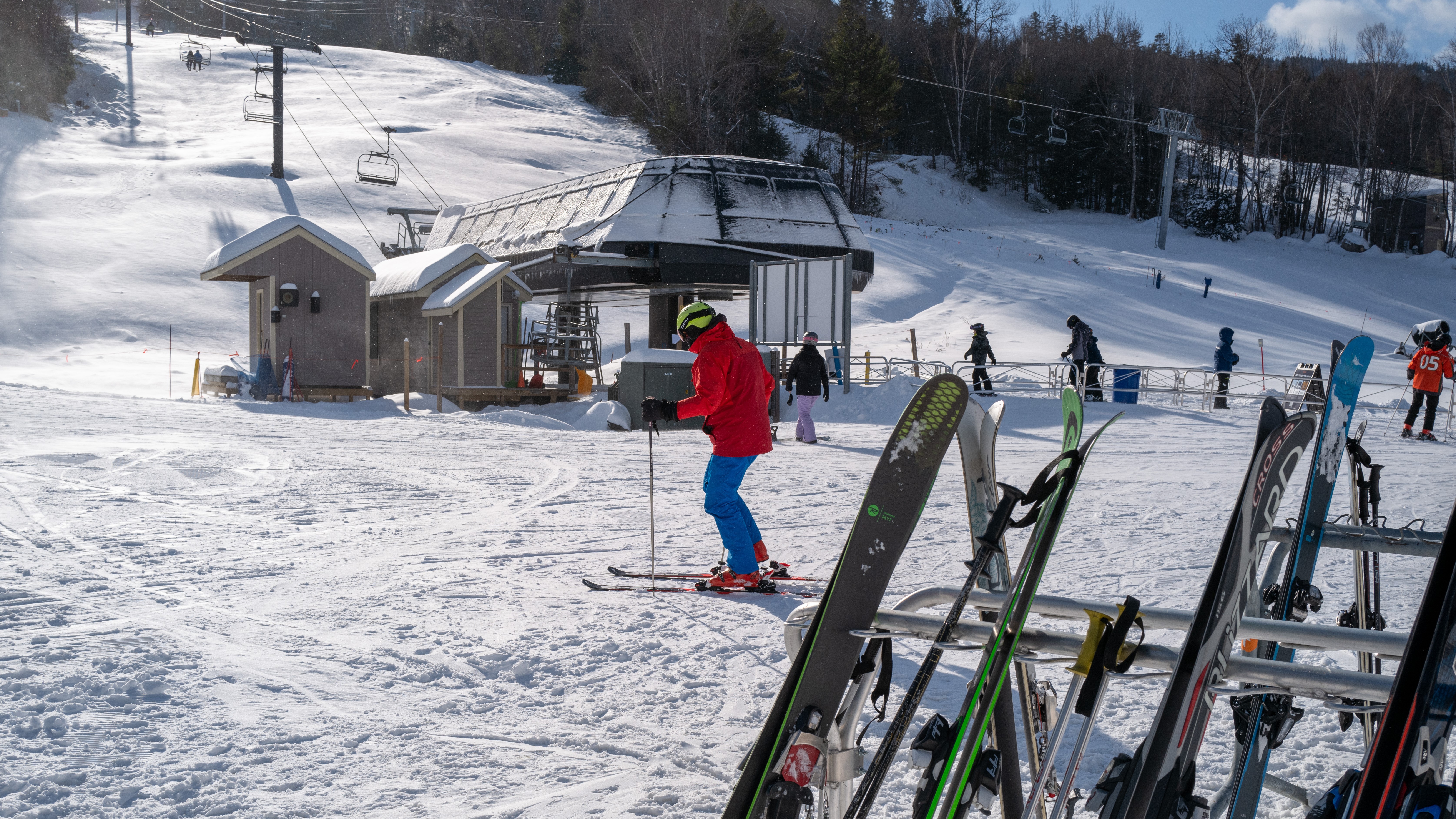
Vail Resorts is making headlines again this week as a video circulated showing a skier on the ground after the chairlift he was riding fell off the rope haul.
The incident took place on Sunday at Attitash Mountain Resort in Bartlett, New Hampshire which is owned by Colorado-based Vail Resorts. At about 12:15pm, the man, who has not been identified, fell about 20 feet after his chair detached from the Flying Bear lift. According to the New Hampshire Division of Fire Safety, he was taken to a hospital with "non-life-threatening injuries" and has since been released.
Video of the aftermath quickly making rounds online, shared by accounts such as @failresorts, showing the skier on the ground next to the chair as the lift continues to run above him. According to witnesses, the man was conscious and walking after the fall. No one else was injured in the incident.
Incidents such as these are rare, and are usually due to high winds – which caused a chair in Michigan to blow off last year – or a mechanical failure, which the State Tramway Board says is the likely cause for this occurrence, though an investigation is ongoing.
"The safety of our guests is our top priority, and we are investigating the incident," says Brandon Swartz, General Manager of Attitash Mountain in response to our request for information.
He adds that the resort performs daily lift inspections ahead of operations. State law requires mechanical lifts to be registered and inspected yearly and the most recent inspection of the lift took place in November. The lift remains closed.
It's not the first time the ski industry giant has made the news in recent weeks – in December, a rollback on a chairlift resulted in five people being hospitalized at Heavenly Resort.
The company, which now owns and operates 39 ski areas around the world has had other growing pains beyond its chairlifts. On December 27, Park City ski patrollers embarked on a 13-day strike over pay conditions in December which resulted in three-hour-long lift lines over the busy holiday period. After an agreement was reached, a skier launched a class-action lawsuit against the resort on behalf of anyone who purchased a lift ticket during the strike and was unable to ski.







